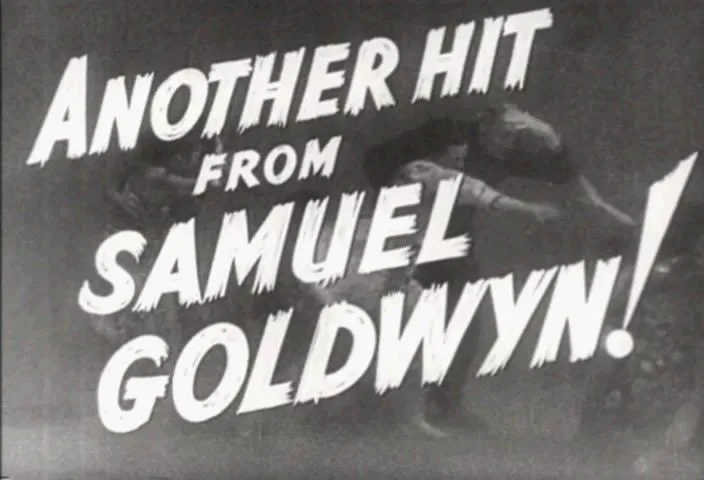
Samuel Goldwyn Productions was a film production company founded by Samuel Goldwyn, a pioneering figure in the early American film industry. The company was established in 1923 as a partnership between Samuel Goldwyn and his brother-in-law Jesse L. Lasky. In 1924, the company entered into a distribution deal with Metro Pictures corporation and Louis B. Mayer Pictures, forming the foundation of what would later become Metro-Goldwyn-Mayer (MGM).
Samuel Goldwyn Productions operated independently for a few years, producing and distributing films. However, in 1924, due to financial difficulties, Goldwyn sold his partnership interest to Marcus Loew, who then merged the company with Metro Pictures and Mayer Pictures to form MGM.
Despite the sale of his interest in the studio that would become MGM, Samuel Goldwyn continued to play a significant role in the film industry. In 1939, he co-founded another studio, Samuel Goldwyn Inc., which went on to produce a number of successful films. Samuel Goldwyn's name became synonymous with quality filmmaking, and he was known for his commitment to artistic excellence in cinema. The legacy of his contributions to the film industry continues to be recognized today.
History
Samuel Goldwyn Productions was founded by Samuel Goldwyn, a prominent figure in the early Hollywood film industry.
Here's a brief overview of its history:
- Founding (1923): Samuel Goldwyn, born Schmuel Gelbfisz in Poland, was a film producer known for his commitment to artistic quality. In 1923, Goldwyn founded Samuel Goldwyn Productions. Initially, it was established as a partnership between Goldwyn and his brother-in-law Jesse L. Lasky, a co-founder of Paramount Pictures.
- Early Success: Samuel Goldwyn Productions gained success with films like "Stella Dallas" (1925) and "Arrowsmith" (1931). Goldwyn was known for his hands-on approach to filmmaking and his emphasis on quality and innovation.
- Financial Struggles: Despite its early successes, Samuel Goldwyn Productions faced financial difficulties in the mid-1920s. In 1924, Goldwyn made a deal with Marcus Loew, the founder of Loew's, Inc., to merge his studio with Metro Pictures Corporation and Mayer Pictures. This merger formed the basis of what would later become Metro-Goldwyn-Mayer (MGM).
- Formation of MGM: The merger resulted in the formation of MGM in 1924, one of the major film studios in Hollywood. Louis B. Mayer, who was part of the deal, became the head of the new studio. Goldwyn sold his partnership interest in Samuel Goldwyn Productions, and the studio became part of the larger MGM entity.
- Post-Merger Activities: Following the merger, Samuel Goldwyn continued to be a key figure in the film industry. In 1939, he co-founded another independent studio called Samuel Goldwyn Inc., which operated separately from MGM. Samuel Goldwyn Inc. went on to produce acclaimed films, and Goldwyn's name became associated with quality filmmaking.
The decision to sell his interest in Samuel Goldwyn Productions and participate in the formation of MGM was likely influenced by the financial challenges faced by the studio at the time. Goldwyn's subsequent ventures demonstrated his ongoing commitment to producing high-quality films and contributing to the art of cinema.
Films Produced by the Studio
Here are some films associated with Samuel Goldwyn Productions:
Under Samuel Goldwyn Productions (1923-1924):
- "Cyrano de Bergerac" (1923)
- "The Eternal City" (1923)
- "Potash and Perlmutter" (1923)
- "The Romance of a Movie Star" (1920)
- "The Gold Diggers" (1923)
Under Samuel Goldwyn Inc. (Founded in 1939):
- "The Westerner" (1940)
- "The Little Foxes" (1941)
- "Ball of Fire" (1941)
- "Pride of the Yankees" (1942)
- "The Best Years of Our Lives" (1946)
- "Enchantment" (1948)
- "The Bishop's Wife" (1947)
- "Hans Christian Andersen" (1952)
- "Guys and Dolls" (1955)
- "Porgy and Bess" (1959)
